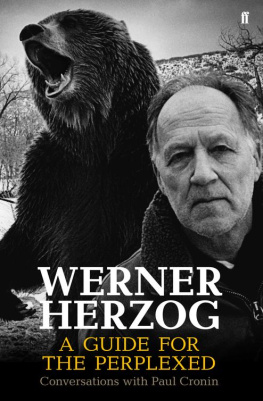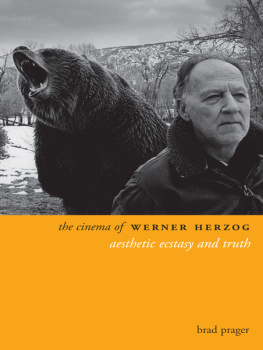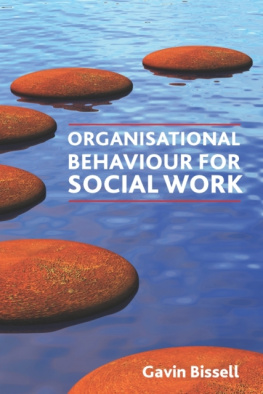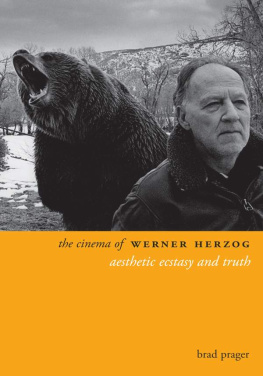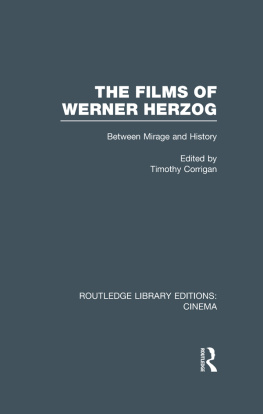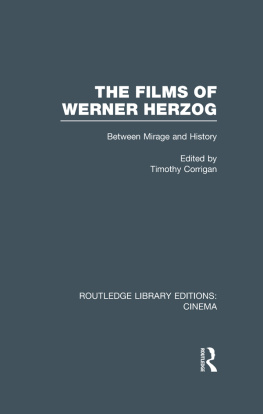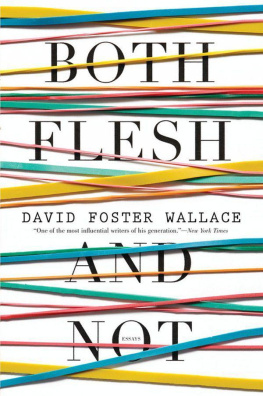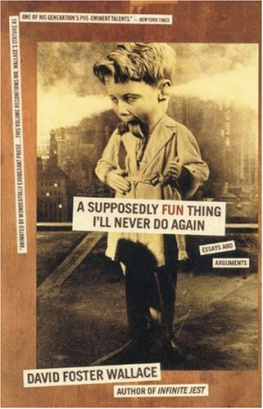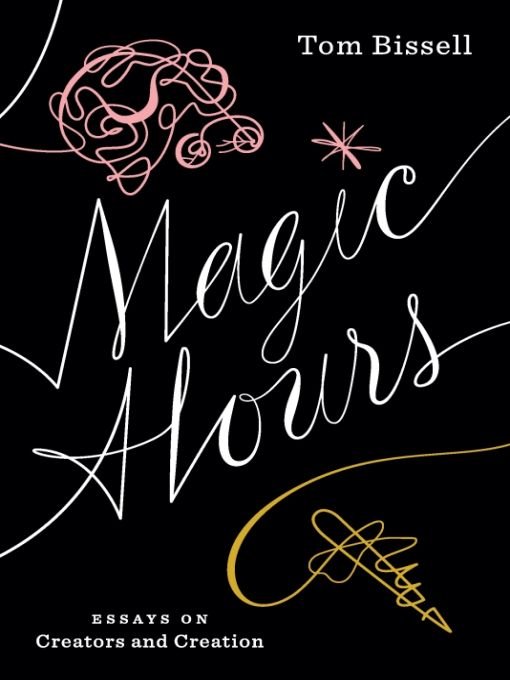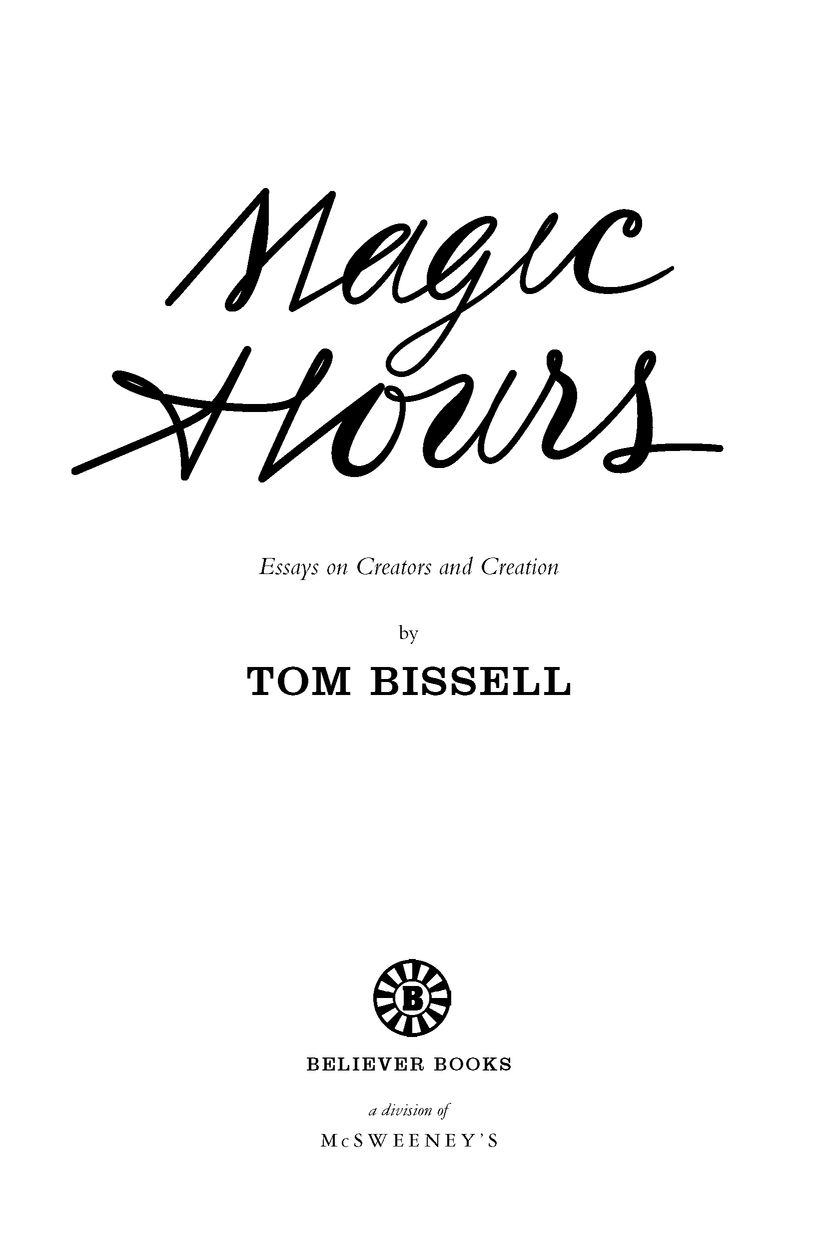Table of Contents
ALSO BY TOM BISSELL
NONFICTION
Chasing the Sea (2003)
The Father of All Things (2007)
Extra Lives (2010)
The Art and Design of Gears of War (2011)
FICTION
God Lives in St. Petersburg and Other Stories (2005)
HUMOR
Speak, Commentary (2003)
(with Jeff Alexander)
For Trisha Miller,
with whom every hour is magic
I think you are in love with more than a story this is the story of stories and what you have done with it.
JAMES TATE,
Brother of the Unknown Ancient Man
AUTHORS NOTE
The first essay in this collection was written by a twenty-five-year-old assistant editor living in New York City; the last was written by a thirty-seven-year-old assistant professor of English living in Portland, Oregon. How I managed to get through an entire decade while remaining an assistant anything is mysterious to me, but no matter. What is perhaps most important to know is that these essays are the work of an accidental nonfiction writer.
I have never studied journalism. Until my early twenties, in fact, I almost never read nonfiction. When I first started writing for magazines, I imagined that I would use nonfiction writing as a way to fund my fiction writing. This did not go exactly as planned. Insofar as I am known as anything today it is as a nonfiction writer. Earlier in my career, I was neurotic enough to let this bother me. When I started out as a writer, I regarded fictionnovels, especiallyas the supreme achievement of the human imagination. While I still hold fiction in very high regard, and continue to write it, I no longer believe in genre chauvinism. Life is difficult enough.
When I am asked by students and younger writers for advice on how to get started as a nonfiction writer, I tell them to start small and look around. You need to find a story you are uniquely well situated to tell, a story that literally cannot be told without you. In my case, my first stories concerned my experience of republishing the work of Paula Fox and a film shoot in my hometown of Escanaba, Michigan. No one was particularly crying out for these stories, I knew, but both, I felt certain, had larger implications if properly explored. Shortly after Escanabas Magic Hour was published, a magazine editor asked me if I wanted to go to the Canadian Arctic and write about NASAs Mars training camp. Yes. Yes I did.
Shortly before the trip, though, I had second thoughts and called the editor. Youre aware, I said, that Im not actually a journalist? That I have no idea how to interview someone? The editor was undeterred. Look, he said, just go up there and write about what you see.
Most of what I have learned about writing nonfiction has come, practically speaking, on the job. However, I am quite certain that my years of writing fiction provided me with the necessary tools of storytelling, observation, and empathyall that stuff that is as hard to teach as it is hard to learn without doing it badly for a long and necessary time. When I began to think about assembling a collection of my nonfiction, I noticed how often I wrote about people engaged in some aspect of creation. To create anythingwhether a short story or a magazine profile or a film or a sitcomis to believe, if only momentarily, you are capable of magic. These essays are about that magicwhich is sometimes perilous, sometimes infectious, sometimes fragile, sometimes failed, sometimes infuriating, sometimes triumphant, and sometimes tragic. I went up there. I wrote. I tried to see.
TCB
Portland, OR
October 19,2011
UNFLOWERED ALOES
We do not possess a thousandth part of the writings of the Ancients: it is Fortunes favour which grants them a short life or a long one.
Michel de Montaigne, On Glory
Destinythe quaint notion that things happen as a matter of necessityno longer retains much intellectual currency But a curious vestige of faith endures in many otherwise skeptical intellectuals, and nothing indicates it more than how they view literature. For intellectuals, destiny as it applies to life is a ludicrous thought, but destiny as it applies to works of fiction and poetry goes largely unquestioned. Call it literary destiny: the faith that great literature will survive and achieve recognition commensurate to its value. We read of Kafkas deathbed plea to his friend and literary executor Max Brod to consign his fiction to the hearth, and grin with the realization that Kafkas survival was ordained. (Never mind the fact that Kafkas girlfriend, Dora Dymant, loved him enough to take his identical plea to her seriously, and put to the torch a large portion of material.) In a similar vein, we read the contemporaneous reviews that pilloried Melville (trash belonging to the worst school of Bedlam literature) and Whitman (his failure to understand the business of a poet is clearly astounding) as dusty scuttlebutt. Yes, we console ourselves, great work may be greeted with scorn and may even disappear altogether for some stretch of time, but the slow process of literary recognition assures that the sweetest cream eventually rises to the top.
The simple problem is that this happy story is, in art as in life, not true. What determines a works longevity is in many cases an accumulation of unliterary accidents in the lives of individuals years and sometimes even decades after the writer has gone unto the white creator. The race is not to the swift, the author of Ecclesiastes tells us, nor the battle to the strong ... but time and chance happen to them all. Nowhere is this truer than literary survival. Some work, through no fault of its own, has simply not made it. If Max Brod had been as obedient as Dora Dymant, the twentieth century would have lost its most emblematic writer. In the face of this alarming possibility, Kafkas greatness seems pale reassurance indeed.
W.W. Norton & Company stands among the last of the independent American publishing houses, and I came to work there more or less by accident. After a Peace Corps hitch and a magazine internship, I was hired by Norton as an editorial assistant, one of modern civilizations least remunerative, most thankless, yet intensely interesting jobs. With my new worms-eye view of the publishing process, I became aware of the many invisible determinants in a books journey to hardback. Editorial meetings, for instance. Where I work, editors and salespeople gather every week to determine which books they will buy. A week or two before the meeting, an editor circulates a manuscript or proposal he or she is interested in; at the meeting, the editor makes a case for the book, and discussion ensues. At this point the vagaries of taste and personality cast an inordinately long shadow. (Most editors can tell chilling stories of a cutting, off-the-cuff comment from a colleague that irretrievably turns an entire room against the project at hand.) Immense too is the influence wielded by a houses sales director, who is forced to make immediate, hard-hearted judgments on what books will sell and how much. Indeed, I suspect that many writers would hang themselves in despair if handed the transcript of an editorial meeting commenced within even a literary house.
It still never occurred to me to question the mechanisms of literary survival. Certainly I believed, then as now, that the publishing industry as a whole does literature few favors. (Publication is the Auction of the Mind of Man, Emily Dickinson wrote, and I doubt there is an editor alive who would disagree, or an agent who would want to.) But I had faith in the books themselves. Every great work, I felt sure, eventually rises above base commerce and sheer indifference. How can one embark upon any serious study of literature without believing this? Accident may misrule the corridors of history and science, but the course of literature is charted by more attentive forces. (Even if, as the generalissimos of political correctness insist, these forces are racist and sexist.)


